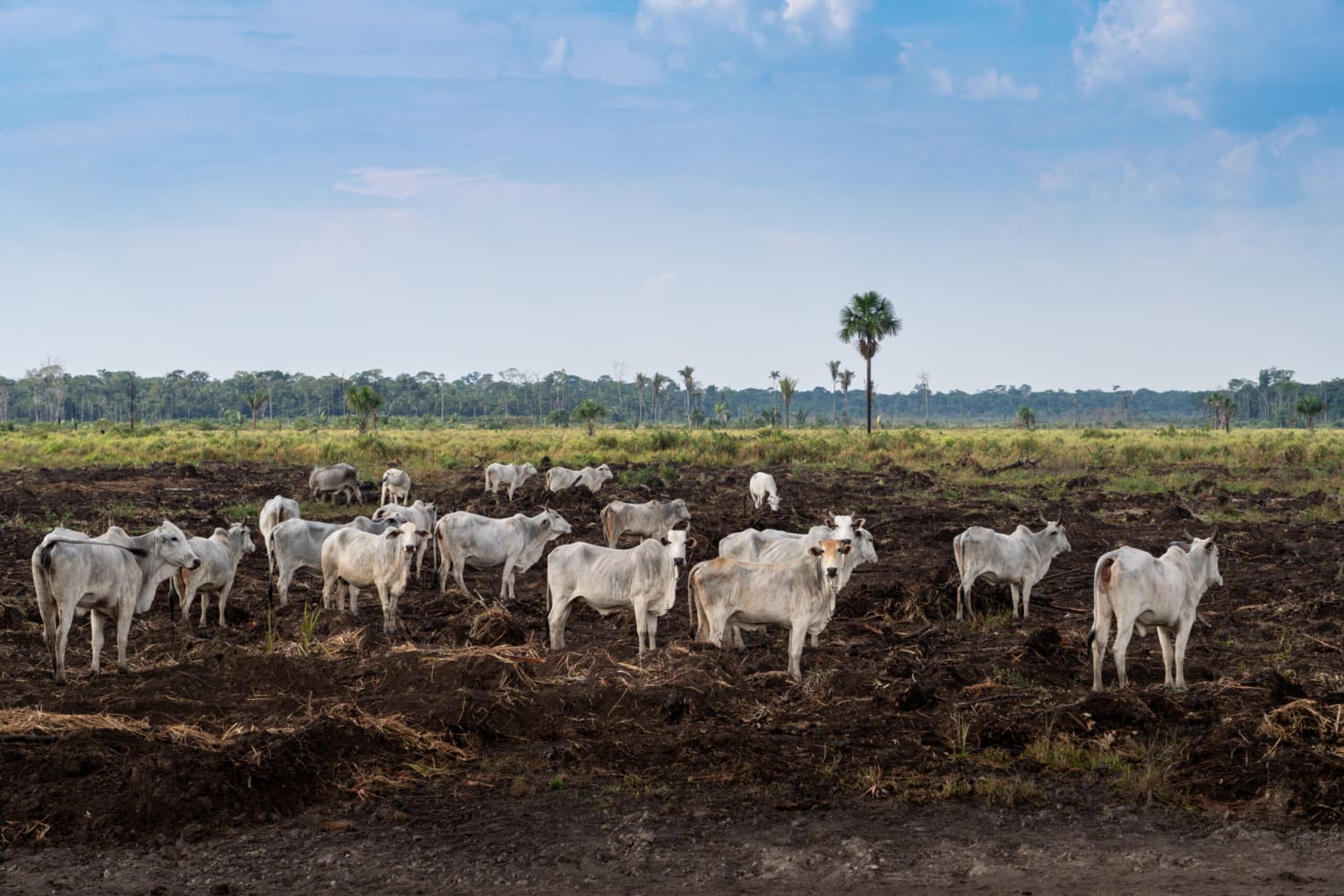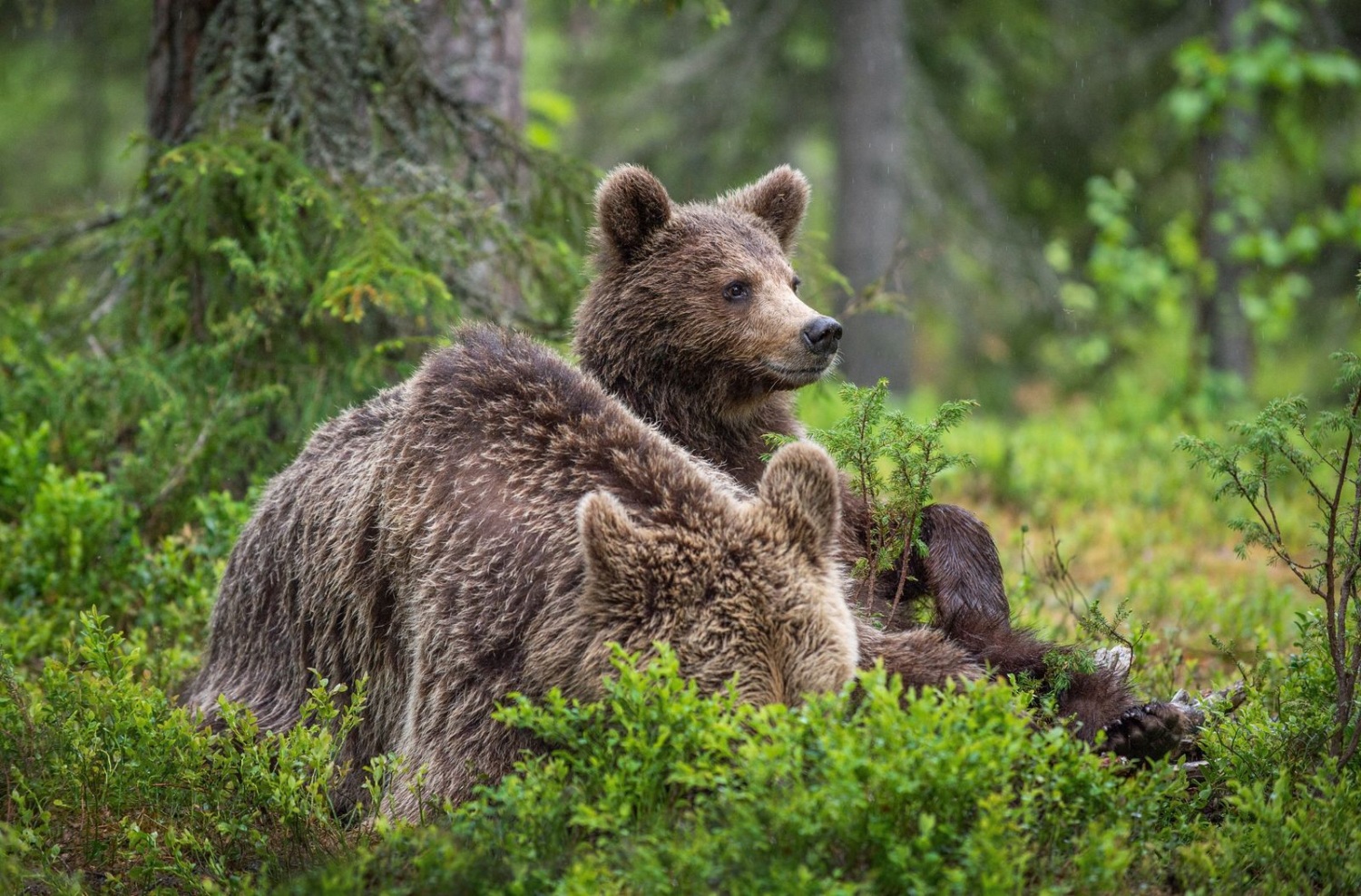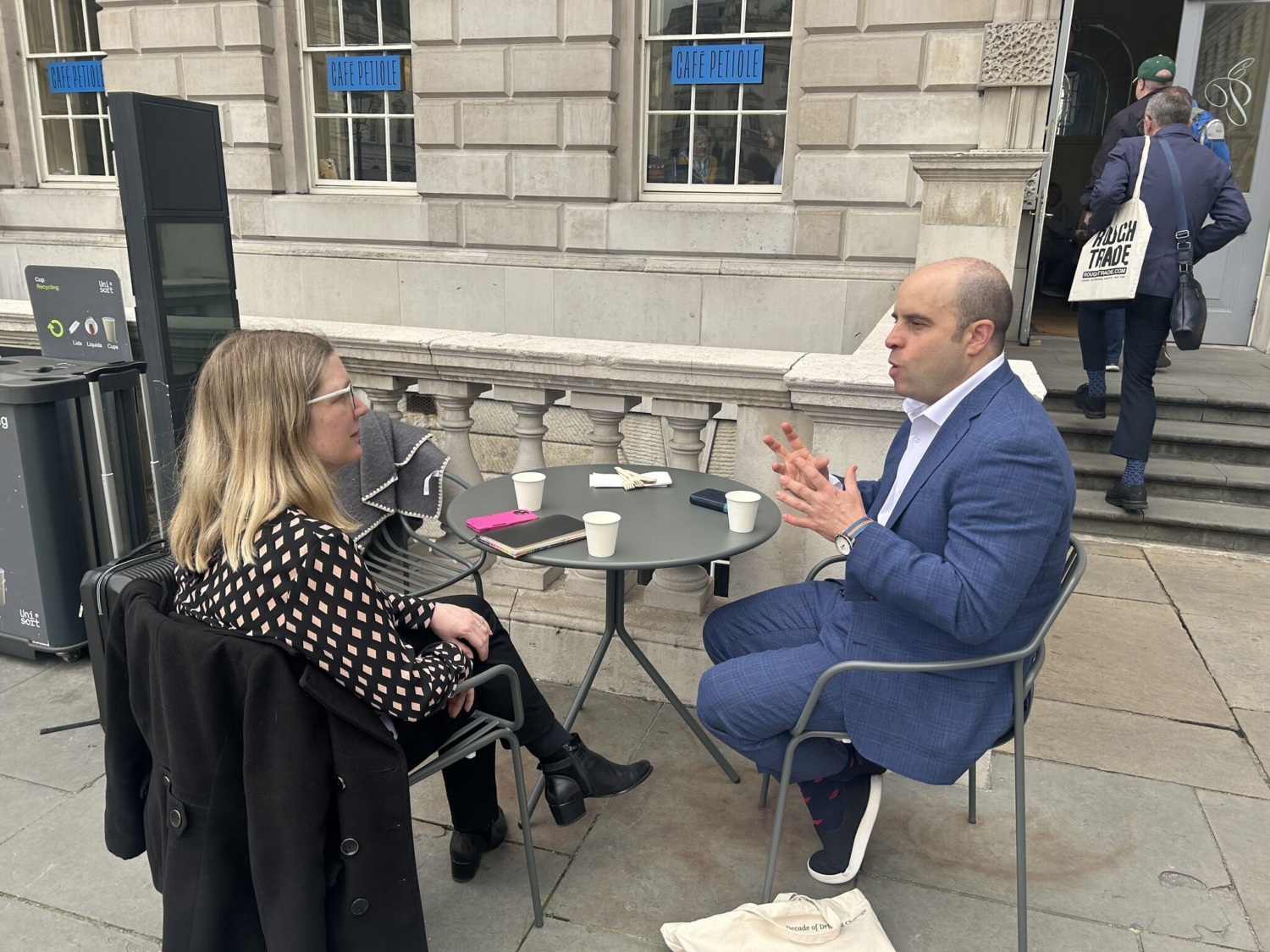
Mighty Earth Reveals Three Meat Giants Linked to Half a Million Hectares of Deforestation in Brazil
For the first time new analysis connects beef products sold in Brazilian supermarkets to JBS, Marfrig, and Minerva slaughterhouses linked to deforestation in the Amazon and Cerrado.
Read the announcement in Português, Español, Français
[December 8, 2023, Dubai, UAE] A new study by Mighty Earth through its Rapid Response deforestation monitoring program has found beef products in Brazilian supermarkets are sourced from JBS, Marfrig and Minerva-owned slaughterhouses, which are linked to more than half a million hectares of deforestation in the Amazon and Cerrado.
Mighty Earth, in partnership with AidEnvironment, used deforestation alerts and satellite imagery to pinpoint the deforestation. This data was combined with data collected through a mobile phone application known as ‘Do Pasto ao Prato’ (DPaP), or ‘From Pasture to Plate’. The app was used to trace beef products for sale on Carrefour, Casino and Sendas supermarket shelves to slaughterhouses across Brazil.
The new Rapid Response program aims to monitor recent deforestation in cattle and soy supply chains in Brazil and proactively halt deforestation in its early stages by alerting and urging companies to cease trading with slaughterhouses and farms linked to recent fires or clearances that have been visually confirmed. Rapid Response aims to avoid further environmental destruction and prevent hundreds of hectares of deforestation becoming thousands.
Key Findings:
- The report found 546,108 hectares of deforestation, an area more than 156 times the size of COP28 hosts Dubai, between 2009 and 2023, on farms that have supplied 36 slaughterhousesoperated by JBS, Marfrig, and Minerva in seven Brazilian states.
- The analysis was based on a sample of 1,009 beef products recorded via the Do Pasto ao Prato mobile app, between July and September 2023, at 71 Brazilian stores owned by retailers Carrefour, Casino/Pão de Açúcar and Sendas/Assaí located in 27 cities across Brazil.
- Of the slaughterhouses linked to deforestation, we identified 13 slaughterhouses linked to the farms with the highest levels of deforestation, of which 10 of them are owned by JBS – the world’s largest meatpacker of beef.
- Among the total amount of deforestation identified by direct and indirect farm suppliers of the three Brazilian meat companies, 94,258 ha was recorded between 2021 and 2023. If exported, these beef products would not comply with the European Union’s forthcoming Deforestation Regulation (EUDR) rules which has a deforestation cut-off date of 31 December 2020.
- The report highlights five “real-time” case studies of recent, visually confirmed deforestation in the Amazon and Cerrado. Across these five case studies, 2,109 ha of deforestation was detected between May and October 2023 on farms that directly or indirectly have been commercially linked to slaughterhouses which sell beef products to supermarkets in Brazil, including Carrefour, Casino (Pão de Açúcar) and Sendas (Assaí).
- JBS did not respond to Mighty Earth about its connection to the five case studies in our report. The rest of the company’s responses to Mighty Earth are here.
- In one of the case studies analyzed, 1,489 ha of recent Amazon rainforest was cleared on a single cattle farm that had trading links with JBS.
- The report found 13,940 ha of native vegetation remains in the five case study farms and are likely under threat of being converted into pasture for cattle grazing.
Glenn Hurowitz, CEO of Mighty Earth, said:
“It’s staggering that we found retailers such as Carrefour, Casino and Sendas selling beef products in their stores in Brazil that are linked, via their suppliers, to over half a million hectares of deforestation in the Cerrado and the Amazon. At COP28 progress is being made to save the world’s rainforests and biomes, so we need these retailers, particularly Carrefour, which is touting its green credentials at the climate summit, to step up and stamp out deforestation and nature destruction from their beef supply chains urgently.”
André Vasconcelos, Global Engagement Lead at Trase, said:
“We urgently need immediate action to halt deforestation across supply chains. Zero-deforestation commitments from beef producers are too narrow as they tend to cover only direct supply from the Amazon. Despite these commitments, the latest Trase data shows a 60% increase in cattle pasture on recently deforested and converted land in Brazil.”
Erasmus zu Ermgassen, Co-founder ‘Do Pasto ao Prato’ urged Brazilian consumers to use the app:
“The Do Pasto ao Prato app empowers citizens to become active beef monitors and ensure that the products retailed in their communities are social-environmentally sustainable. These ‘citizen scientists’ can transform our food systems by increasing their transparency through tools like DPaP. Therefore, we urge Brazilians to use DPaP and help to improve the quality of Brazilian beef supply chains.”
Background
The Rapid Response deforestation monitoring system was first launched in Brazil in 2019, when Mighty Earth aimed to build on the success of its original Rapid Response program for palm oil to monitor the expansion of soy plantations and cattle farms in the Amazon and the Cerrado. From June 2019 to February 2021, Mighty Earth issued 21 reports bringing light to the obscured data connecting meat producers and soy traders to deforestation and land clearance in Brazil, threatening Indigenous communities and endangering wildlife.
How Rapid Response works
The Rapid Response – Cattle Report is published by Mighty Earth, in partnership with AidEnvironment, using data collected through the Do Pasto ao Prato Initiative, and with additional research from Repórter Brasil. With this updated system Mighty Earth, in partnership with AidEnvironment and additional research from Reporter Brasil, will be monitoring tens of millions of acres of the agriculture frontier across Brazil. When deforestation is found in the supply chains of major meat companies, alerts will be filed with them, their retail customers, and financiers to push them to act on deforestation in their supply chains.
Joao Goncalves, Mighty Earth’s Senior Director for Brazil, said:
“With our Rapid Response 2.0 monitoring reports we’re demonstrating that traceability and real-time monitoring are our frontline defences against deforestation in the Amazon and the Cerrado. This begs the question, if we can do it, why can’t the meat industry? We hope JBS, Marfrig, and Minerva and their retail customers Carrefour, Casino and Sendas get the message that ‘We’re watching them!’ and that we expect them to act on this information urgently by blocking suppliers found to be destroying nature and threatening Indigenous communities and wildlife that need standing trees for their survival. We’ll be raising alerts with producers, retailers and financial backers urging a rapid response to prevent hundreds of hectares of deforestation from becoming thousands.”
Mighty Earth’s Rapid Response 2.0 new report series on cattle will be published on quarterly basis with the next one due in March 2024. The first series of the Rapid Response soy program will also be launched in early 2024.
###
For more information or to arrange an interview please contact:João Gonçalves, Senior Director of Brazil at Mighty EarthJoao@mightyearth.org
Carole Mitchell, Senior Director of CommunicationsCarole@mightyearth.org+44 7917 105000
Sydney Jones, Press SecretarySyd@mightyearth.org+1 561 809 5522
Darren McKenzie, Communications LeadGlobal Canopyd.mckenzie@globalcanopy.org+44 7789 844900
Notes to the editor:
- Developed in 2017, Rapid Response has been instrumental in monitoring deforestation cases associated with commodities supply chains of major global agribusiness companies. Based on this data, Mighty Earth campaigns to alert and move quickly to hold those companies accountable and ensure they enforce their own environmental policies before more damage is done.
- Mighty Earth’s Rapid Response program was initially deployed to ensure accountability in palm oil commitments within Indonesia and Malaysia. The program has successfully tracked deforestation and peatland development across over 3,000 oil palm concessions, covering an expansion area exceeding 21 million hectares – more than twice the size of Portugal. This research has contributed to a remarkable 90% decline in deforestation for palm oil, marking a significant climate victory for Southeast Asia.
- Rapid Response 2.0 reports will be released on a quarterly basis with the next report scheduled for launch in March 2024.
- Rapid Response 2.0 combines new data from ‘Do Pasto ao Prato’ mobile phone app, which allows users to scan beef products in Brazilian supermarkets and to trace its origin to specific slaughterhouses in Brazil.
- AidEnvironment made links from identified slaughterhouse to direct and indirect suppliers via animal transport data and confirmed deforestation via the INPE-PRODES deforestation data and official fire alerts. Repórter Brasil added content to the case studies.
- Mighty Earth contacted the meatpacking and retail groups identified as potentially connected to the five case studies in the report, where forest fires or deforestation were detected in September and October 2023. Carrefour and Sendas/Assaí replied, assuring us that they had suspended these five farms from their supplier list, while Marfrig and Minerva either did not identify the deforestation or could not find the supplier in their database. JBS and Casino did not respond to our inquiries about these cases. Full company responses are available here.
Mighty Earth is calling for:
- Retailers to immediately disclose on a public platform the volume and origin of their beef products in Brazil – including details of the slaughterhouses, lists of direct and indirect farms, with the proportion of beef and beef products sourced from a verified Zero Deforestation and Conversion (ZDC) supply chain. We also urge them to submit the deforestation cases to their public grievance mechanism and to suspend purchasing from slaughterhouses that directly or indirectly source from farms involved in native vegetation clearance.
- Meatpackers to immediately disclose on a public platform the volume and origin of cattle (including lists of direct and indirect farms with the proportion of cattle coming from ZDC farms) and to submit the five deforestation cases to a public grievance mechanism to monitor the progress, engagement and suspension of each non-compliant farm.


